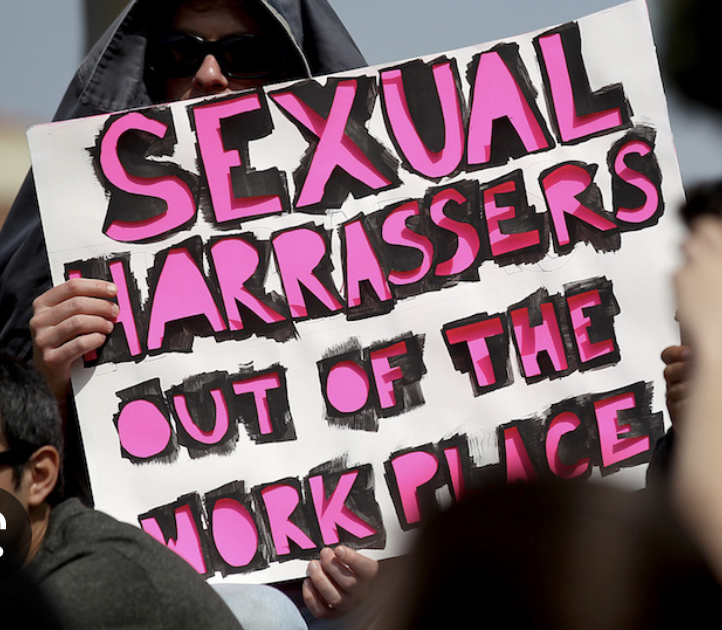
In higher education, the problem is sufficiently common that it has earned a shorthand designation: “pass the harasser.”
In 2019, the Chronicle of Higher Education described the problem:
“A professor or administrator commits sexual harassment, resigns quietly, and gets a new job at a different institution.
“In some cases, the college on the receiving end is aware of the previous misconduct and makes the hire anyway, wooed by the person’s credentials. In others, the college doesn’t know about the harassment because institutions don’t share that information. Often, colleges sign confidential settlement agreements with employees who’ve committed harassment, moving them on without
anyone outside of that institution knowing what they’ve done.”
https://www.aps.org/programs/ethics/upload/Pass-Harasser-Higher-Eds-Wor…;
In Kentucky, the problem surfaced in The Kernel’s April 2016 request to the University of Kentucky for records related to allegations of sexual assault leveled against James Harwood, a professor in the University's College of Agriculture.
UK “assembled an investigative file and prepared a final investigative report detailing its findings. In February 2016, the University reached a separation agreement with Harwood who left the University with certain continuing financial benefits and with tenure intact.”
https://casetext.com/case/univ-of-ky-v-kernel-press-inc
UK resisted disclosure of the investigative records, hauling the student newspaper into court in a five year legal battle that the university ultimately lost.
It is a recurring problem not limited to universities. The Jefferson County Sheriff recently fired a deputy sheriff "who'd previously pleaded guilty to a sex crime involving a 15-year-old girl and got the record expunged."
https://www.wdrb.com/wdrb-investigates/sheriff-forced-to-fire-louisvill…
https://www.wdrb.com/wdrb-investigates/a-new-kentucky-law-aims-to-keep-…
Employment documents show that in the years before his removal, the deputy sheriff "was terminated by both Taylorsville and West Buechel police departments."
https://www.wdrb.com/wdrb-investigates/he-was-arrested-for-having-sex-w…
The former deputy sheriff is seeking restoration of his certification — revoked earlier this year by the Kentucky Law Enforcement Council in light of a determination that expungement of the 1996 criminal offense was improper.
This week, two articles appeared in the Lexington Herald-Leader that suggest the problem has not abated.
Valerie Honeycutt-Spears and Beth Musgrave reported on the Kentucky Education Professional Standards Board’s revocation of a Kentucky teacher’s certificate for three years. They identified him as “an example of a Kentucky educator who was hired by one school district — in this instance, Jessamine County — even though he had been disciplined at another school district — Paris Independent, where he was investigated for inappropriate behavior around students.”
https://www.kentucky.com/news/local/education/article268868727.html
“The Lexington Herald-Leader obtained [his] disciplinary records through an Open Records Act request.”
“It’s not known how many teachers have been able to move from district to district after being investigated for sexual misconduct,” Honeycutt-Spears and Musgrave reported. “Those type of records aren’t kept by any state agency.”
In a column also published this week, Herald-Leader columnist Linda Blackford wrote:
“At least two former Bourbon County High School students have reported sexual harassment — including numerous demeaning and sexualized comments — by one of their teachers to school officials, and at least one of those students made a formal complaint to the Education Professional Standards, which oversees teacher certification and discipline.
“But it should come as no surprise to Bourbon County officials; the subject of the complaints . . . was investigated and disciplined for sexual harassment in 2009 when he was a high profile researcher at the University of Kentucky. Three years later, he resigned amid federal and UK investigations into falsified data at his laboratory and became a teacher at Bourbon County High School.”
https://www.kentucky.com/opinion/linda-blackford/article269032112.html
“It’s a dismal saga,”Blackford wrote, “one that condemns the ‘grownups’ at every point, from UK, where one official is believed to have removed the letter detailing [the professor’s] sexual harassment discipline from his personnel file, to Bourbon County administrators, who didn’t bother to investigate every angle of [his] career or, apparently, the more recent complaints about him.”
As Blackford notes, records obtained by The Herald-Leader through the open records law raise additional serious questions.
“According to the documents, in 2009, [the professor] was put on probation for a year and was ordered to seek psychiatric evaluation. A reprimand was supposed to be put in [his] personnel file; however, that reprimand was not in the file obtained by the Herald-Leader under a separate open-records request. At the time, UK Counsel William Thro said he believed that [the chair of the Department of Pediatrics] had removed the letter from his file.”
WDRB’s and The Herald-Leader’s reporting demonstrates, once again, the importance of public records in confirming (or refuting) that “public servants are indeed serving the public.” This “policy of disclosure” extends to public servants charged with investigating allegations of misconduct leveled against public employees under their supervision.
https://law.justia.com/cases/kentucky/supreme-court/1992/90-sc-498-dg-1…
Public records tell the story public agencies are often unwilling to tell — even those that are improperly removed — but harassers continue to be passed.


